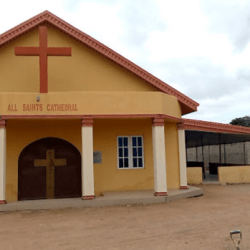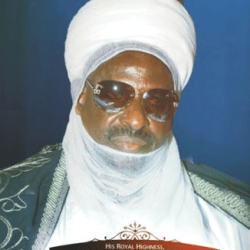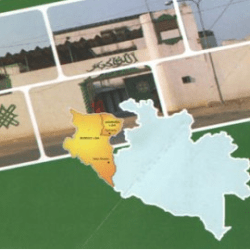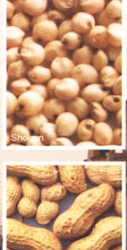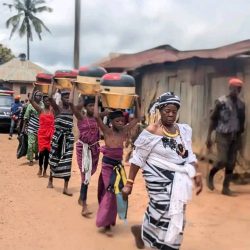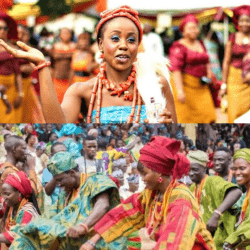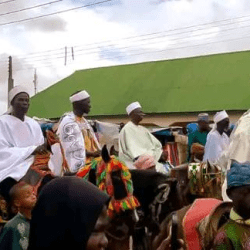The ancient Kingdom of Borgu was a unique West African polity that showcased a blend of ethnicities, languages, and political traditions. The region’s complex history, marked by the influence of the Boko/Busa and Baatombu people, continues to shape its cultural and social dynamics. The intermarriage of these groups, the role of the wassangari ruling class, and the shifting ethnic landscape over centuries have all contributed to the vibrant and diverse identity of Borgu.
The kingdom’s legacy lives on in the modern territories of Nigeria and Benin, where various ethnic groups continue to assert their cultural and political significance. The historical connection between the Boko, Baatombu, and other peoples of Borgu underscores the importance of understanding the nuanced interplay of ethnicities in the region’s past and present.
The Wassangari Political Class and the Kisira Migration
One of the most distinctive features of Borgu’s political landscape was the dominance of the wassangari class, a ruling aristocracy that traces its origins to the Kisira migration. This migration, believed to have occurred as early as the 12th century, saw the Kisira people arrive in Borgu and gradually assimilate into the local population, particularly the Boko/Busa inhabitants.
Over time, the Kisira migrants intermarried with the indigenous Boko/Busa people, establishing the ruling wassangari class. This political elite maintained a significant influence in Borgu, cementing the power structures that would define the region for centuries. According to local tradition, the Kisira first settled near present-day Babana in Nigeria, at a site known as Swalla. The name “Swalla” is said to derive from the Boko phrase “su wa la,” meaning “he came to us here,” marking the arrival of the Kisira people. From this point, they spread across the region, establishing strongholds in cities like Bussa, Illo, and Nikki.
Cultural and Linguistic Interactions
The Boko/Busa people were traditionally regarded as the rulers of Borgu, and their influence permeated both the cultural and political spheres. However, the ruling Sinaboko of Nikki, one of Borgu’s prominent cities, were of Bussanche origin, a subgroup of the Mande people, rather than the local Bariba population. This highlights the complex ethnic dynamics that characterized Borgu’s governance, where non-Bariba rulers maintained authority over Bariba communities.
In addition to Nikki, other Baatombu towns such as Bembereke also had chiefs with Boko ancestry, despite adopting the Baatonum language. This blending of ethnicities, languages, and cultures underscores the historical interconnectedness of Borgu’s people, and the enduring influence of the Boko/Busa across the region.
The Sociopolitical and Ethnic Composition of Borgu
The Kingdom of Borgu, with its vast and diverse cultural landscape, was characterized by a complex interplay of ethnic groups, linguistic variations, and a unique aristocratic system. Over centuries, this region, marked by intermarriages and migrations, evolved into a multicultural hub where various groups coexisted and shared power. The Boko/Busa and Baatombu people, in particular, played pivotal roles in shaping the kingdom’s history and governance.
Ethnic and Linguistic Evolution in Borgu
The intermarriage between the Baatombu and the Boko/Busa, especially among the nobility, led to a shift in language and culture over time. Many of the later kings of Borgu, despite being of Boko ancestry, adopted the Baatonum language due to the strong influence of the Baatombu people. However, the current king is a non-Baatonum speaking Boko, reflecting a reassertion of the original Boko lineage, which continues to hold significant historical importance.
The term Bariba has often been used as an umbrella term to describe both the Baatombu and Boko/Busa peoples. This classification, however, belies the nuanced distinctions between the groups. Boko were considered the nobles of Borgu, belonging to the prestigious Kisira family. The Boko’s noble status granted them exclusive rights, such as the privilege of wearing pants, a symbol of their elevated position in Borgu society. This tradition highlights the hierarchical structure within the kingdom, where the Boko were positioned as the ruling elite, while other “common” tribes existed alongside them.
Ethnic Diversity in Present-Day Borgu
Borgu’s ethnic diversity has persisted into the modern era. According to census data from Nigeria (1991) and Benin (1992), there are over twenty distinct ethnic groups that have a significant presence in Borgu. These groups represent a wide range of linguistic and cultural traditions, each contributing to the mosaic of Borgu’s contemporary identity.
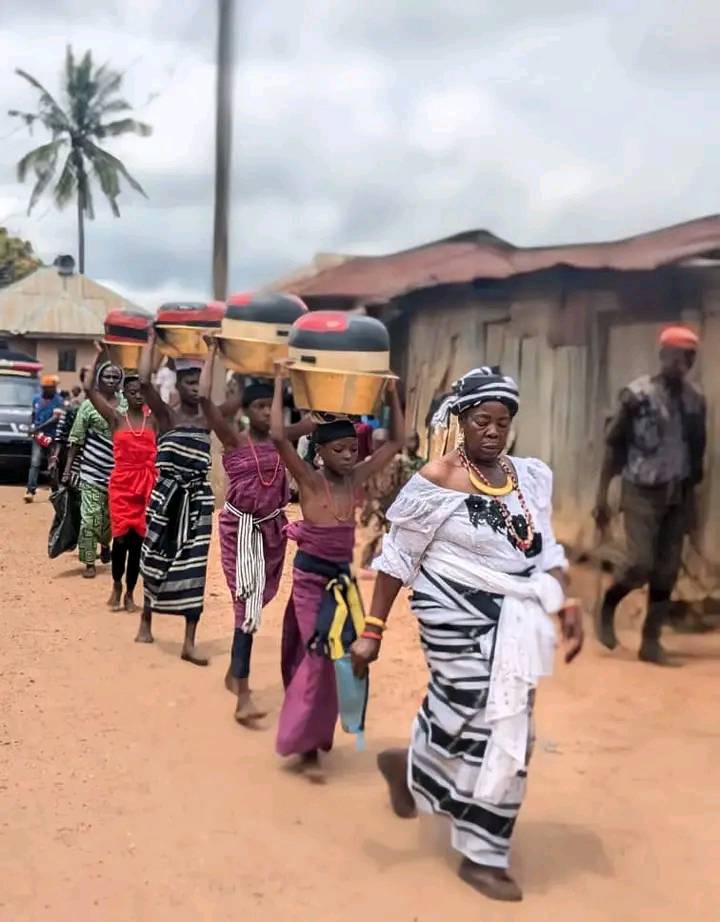
Language Classification and Population Figures:
Based on the 1991 Nigerian Census, the 1992 Benin Census, and the findings from the Ethnologue (Grimes, 1992), Borgu’s population is divided among various language groups. These population figures provide insights into the distribution of the ethnic groups in Borgu, which spans across both Benin and Nigeria.
- Boko/Busa: The dominant ethnic group, with a significant presence in both Benin and Nigeria.
- Baatombu (Bariba): Another large group, particularly influential in the cultural and political dynamics of Borgu.
- Other Ethnic Groups: Including the Fulbe, Reshe, Kambari, Dendi, and Hausa, each contributing to the linguistic and cultural diversity of the region.
Geographical Boundaries of Borgu:
The ancient kingdom of Borgu was geographically bounded by the River Niger to the north and east, with latitude 9° marking its southern boundary and longitude 2° defining its western extent.
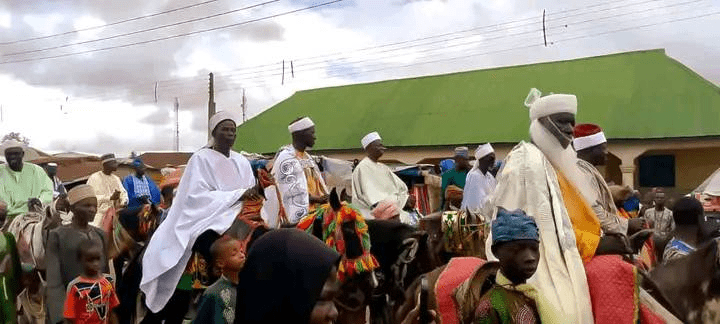
While most of this area remains under the cultural influence of the Boko/Busa and Baatombu people, several regions have experienced demographic shifts over time:
- Malanville and Karimama (Benin): These sub-prefectures, located north of Kandi, are now dominated by the Dendi people, reflecting changes in the ethnic landscape of the region.
- Kaoje (Bagudo LGA, Nigeria): This area has become predominantly inhabited by the Fulbe people, marking another shift in Borgu’s demographic composition.
- Yauri LGA (Nigeria): In the northeastern part of Borgu, the Reshe and Kambari peoples dominate, further highlighting the ethnic complexity of the kingdom.
Niger-Congo Languages in Borgu
Most of the languages spoken in Borgu belong to the Niger-Congo language family, which is one of the largest language families in Africa. Linguistic chart highlights the relationships between these languages, many of which are spoken by the various ethnic groups that make up Borgu’s population. However, it is important to note that not all languages in Borgu fall under the Niger-Congo classification. For instance:
- Dendi and Hausa are two languages spoken in the region that do not belong to the Niger-Congo family. These languages, while prominent, represent a distinct linguistic category, reflecting the broader linguistic diversity of the area.
Ethnic and Political Changes Over Time
Although Borgu has been traditionally dominated by the Boko/Busa and Baatombu people, the kingdom’s demographic landscape has shifted over time due to migrations, intermarriage, and changing political dynamics. Certain areas of Borgu, such as Malanville, Karimama, Kaoje, and Yauri, no longer fall under the control of the Boko/Busa-Baatombu peoples. The dominance of the Dendi, Fulbe, Reshe, and Kambari peoples in these regions marks a notable departure from the traditional ethnic makeup of the kingdom.
Despite these changes, the wassangari ruling class, particularly those of Boko/Busa descent, continue to hold a place of prestige in Borgu’s traditional political structures. The legacy of the Kisira migration, the symbolic importance of the noble class, and the ongoing influence of the Boko/Busa people in Borgu’s leadership all serve as enduring reminders of the region’s historical foundations.
